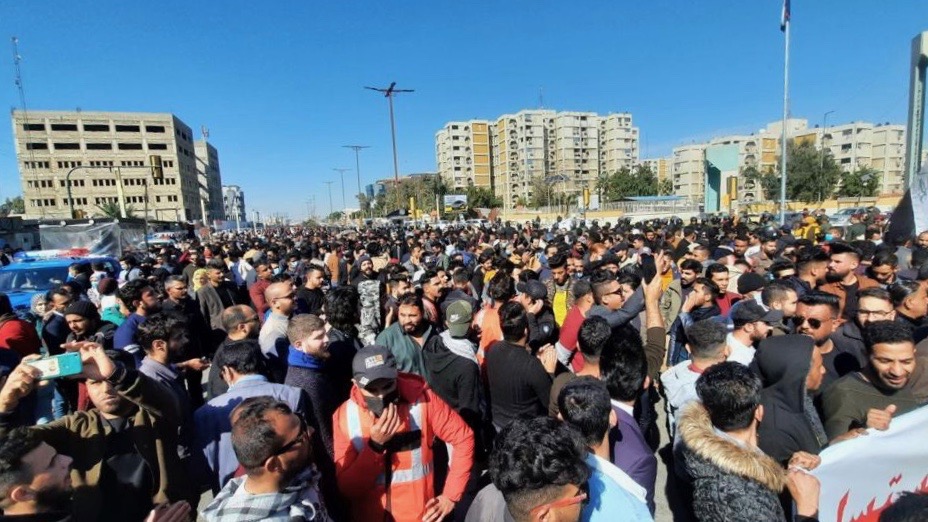Protests continued in Iraq as angry citizens took to the streets against the unemployment crisis in the country on Tuesday, February 2. Since the weekend, protests have been witnessed in capital Baghdad and in oil-rich southern regions of the country, including the important Nassiriya and Gharaf oil fields. Unemployment levels in Iraq in recent months have reached 13.8%, the rate among young adults and recent college graduates being as high as 27%.
Protesters condemned the government’s employment policy for 2021 with the announcement that new jobs in the public sector have been suspended for this year. As per the government, the ongoing pandemic and economic setback due to declining financial revenues are the primary reasons behind this decision.
Thousands of protesters surrounded the prime minister’s office in central Baghdad on January 31 and demanded the government frame a new policy on employment that provides jobs to Iraqis.
In the south of the country, protesters forced a work shutdown at an oil field of the Dhi Qar company by preventing employees from entering the premises. Many of the protesters were graduates in fields like engineering, administration, economics and other technical streams. Along with activists, they had staged a sit-in in front of the Dhi Qar oil field and set a deadline for the government and the company management to respond to their demands. The oil field was forcefully shut down a week after the deadline expired and there was no response from the government or the company.
The Iraqi economy, devastated by the US-led invasion and occupation and its after effects, is struggling to recover despite the country having one of the largest oil reserves in the world. The US invasion which toppled the government of Saddam Hussein resulted not only in large-scale death and destruction, but also intensified sectarian divisions in the country.
The vacuum created after Hussein’s ouster also provided an opportunity for the rise of extremism, with international terrorist groups such as Al-Qaeda and ISIS (Islamic State of Iraq and Syria) taking root in Iraq and neighboring Syria.
Meanwhile, thousands of civilians have been killed or injured, while millions have been displaced or had their livelihoods destroyed. In recent years, misgovernance and corruption by successive Iraqi governments has led to massive nationwide protests. These have been met with a brutal and repressive crackdown by the Iraqi authorities, with more than 600 Iraqis dying at the hands of the Iraqi security forces and over 25,000 injured. However, despite the heavy handed government response, protests against the ruling establishment have continued. After a brief gap due to COVID-19-related lockdowns during most of 2020, protests are again gaining steam with no end in sight to the severe economic and unemployment crisis as the government continues to turn a blind eye to its own citizens.





